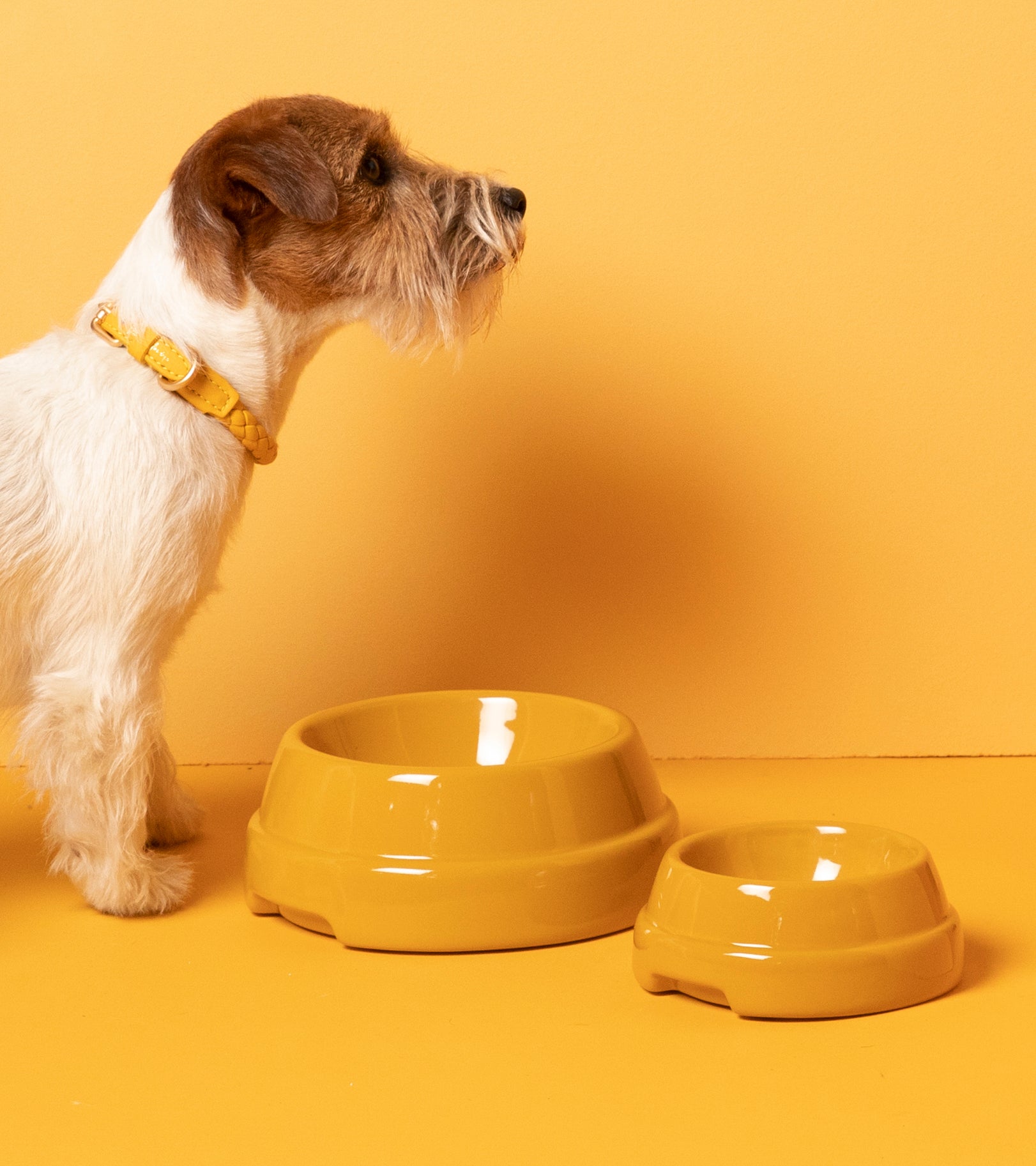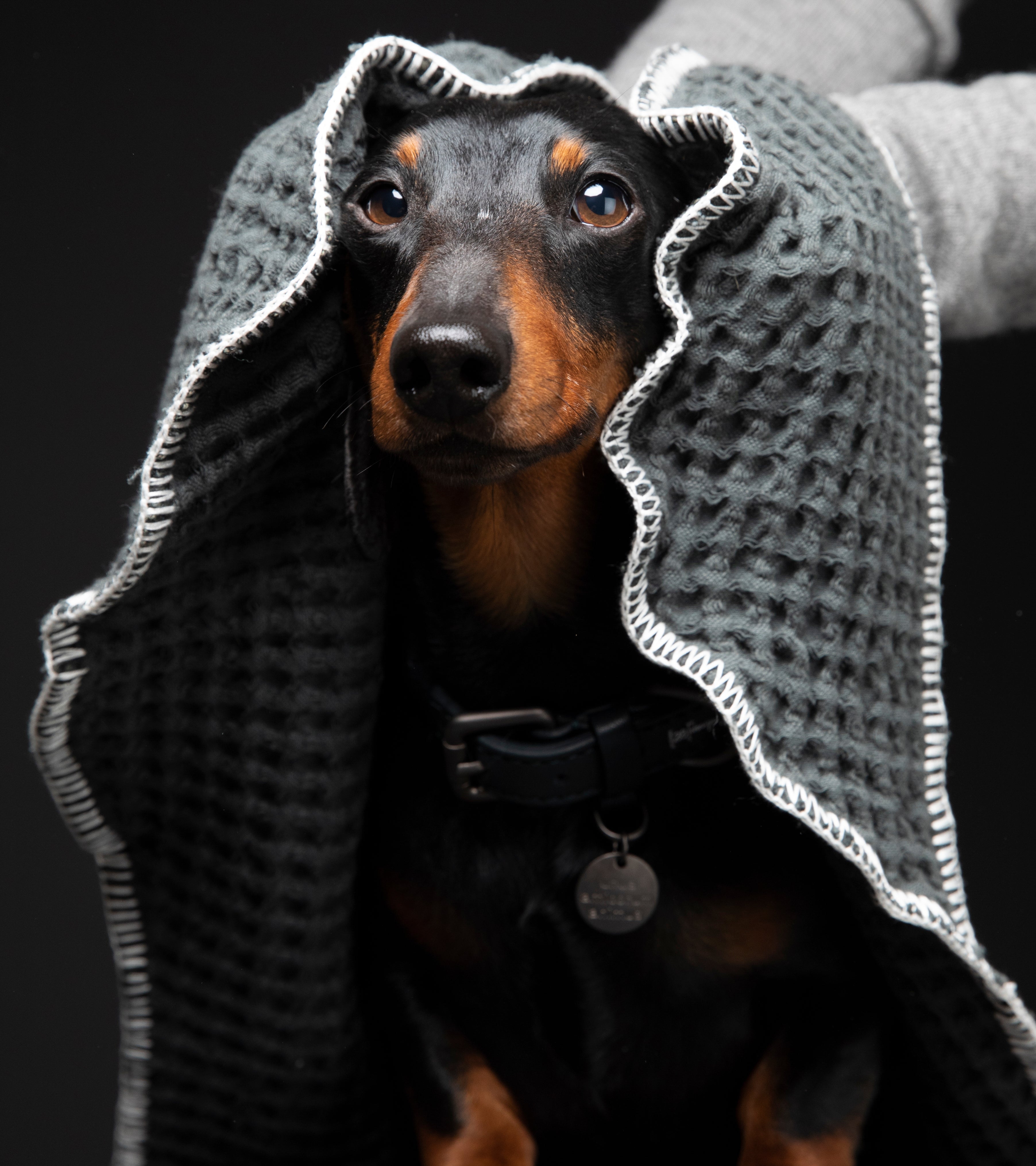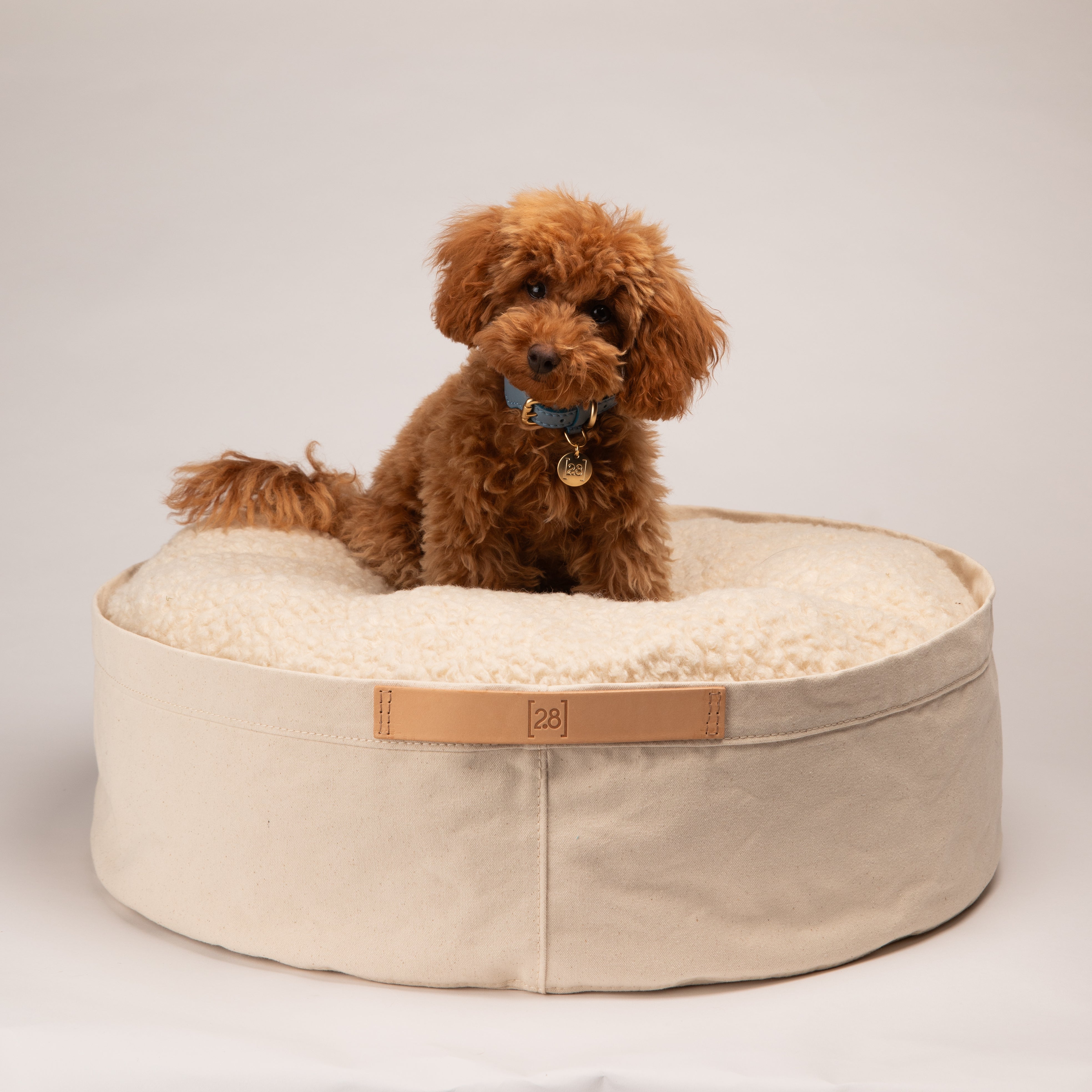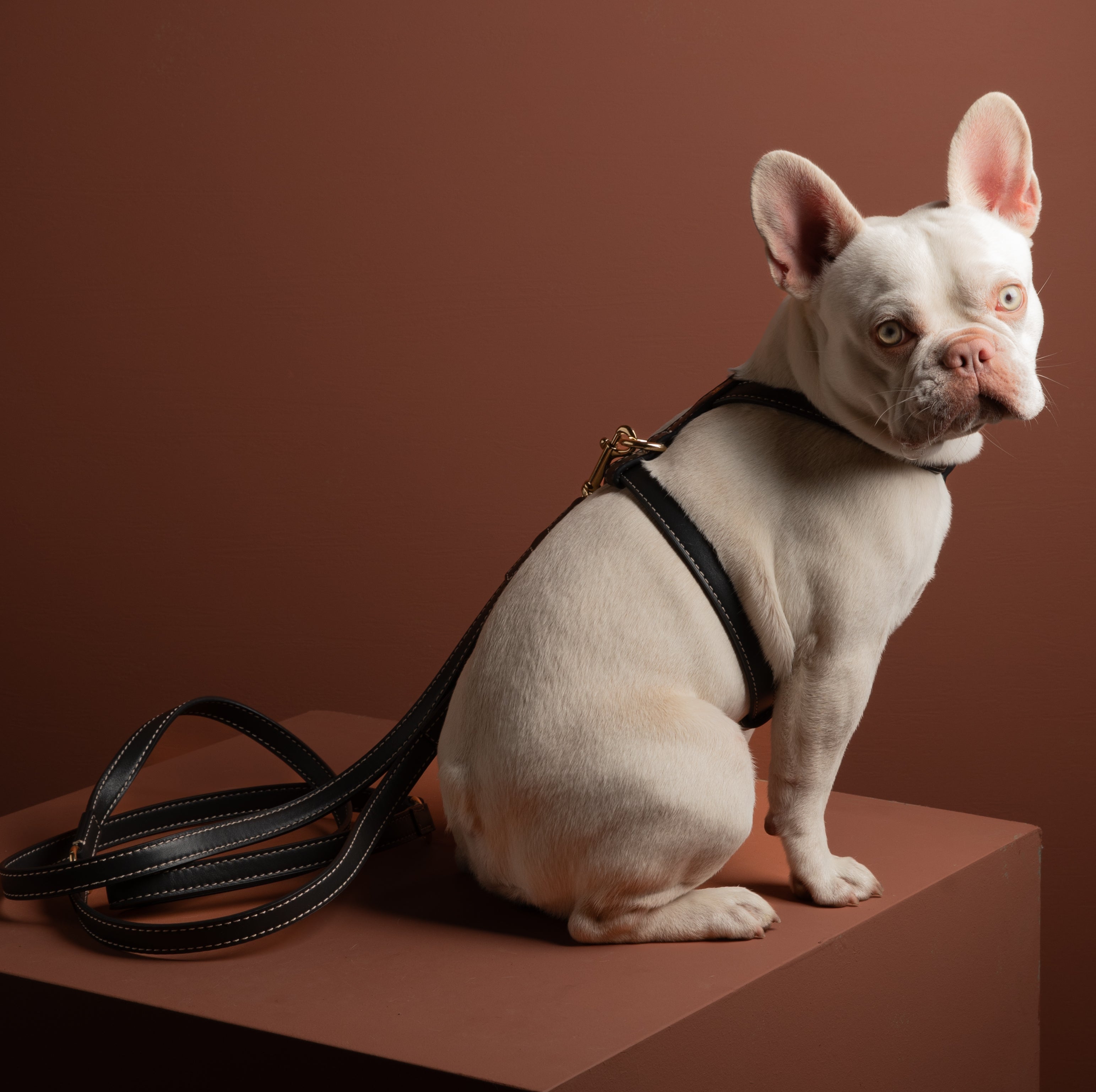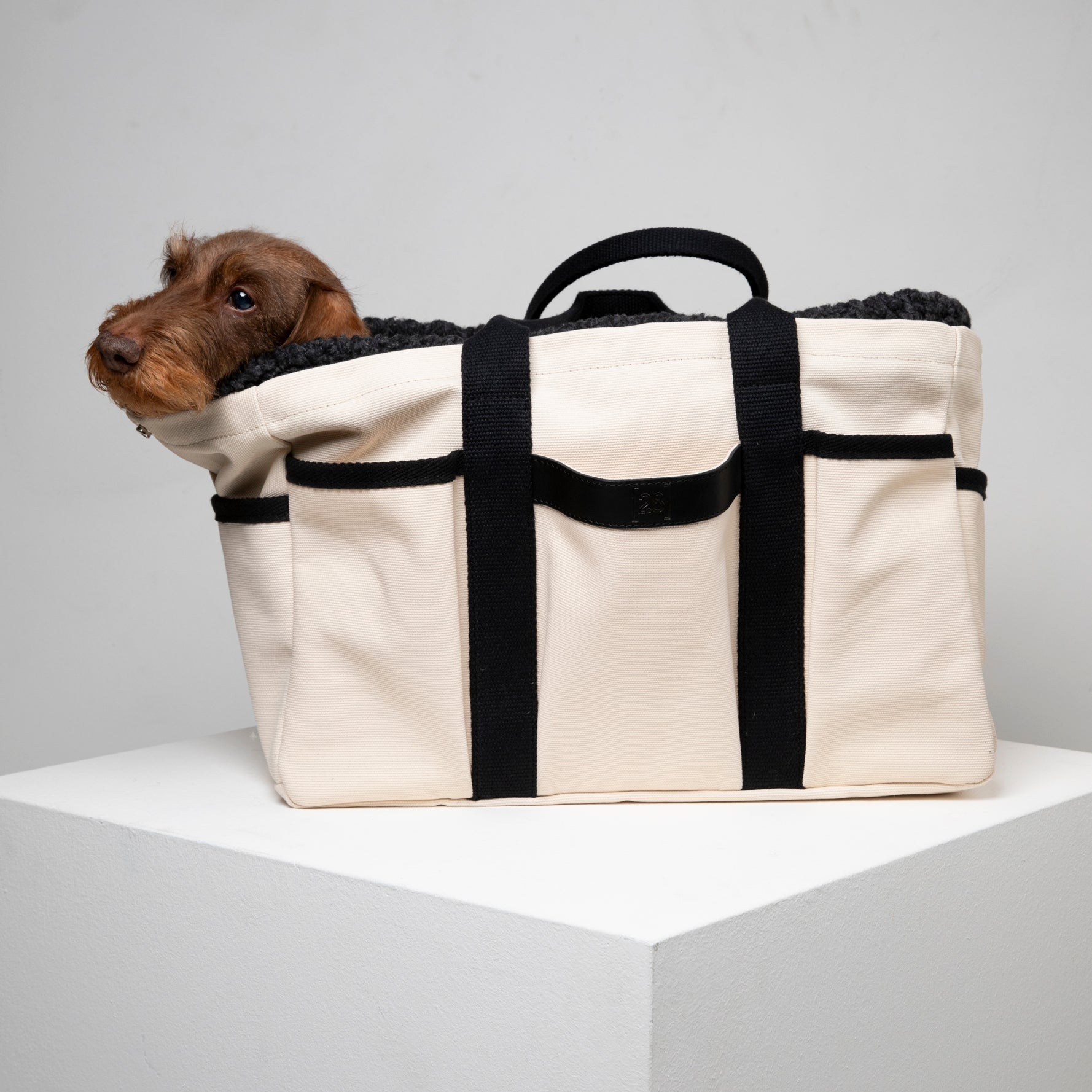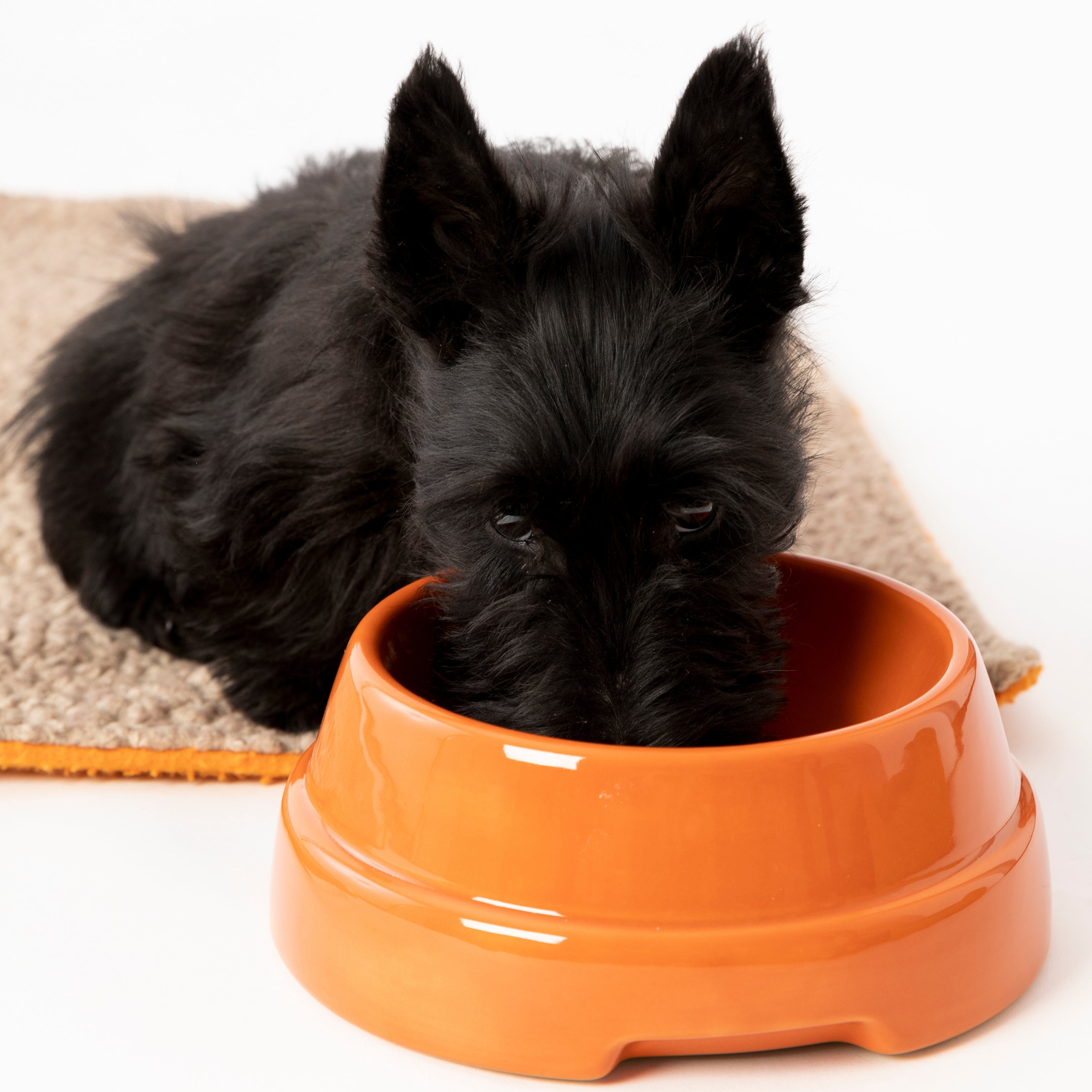In Bed With Us… or in Their Own Dog Bed?
We bet you’ve also spent plenty of time watching your dog sleep in their bed—especially if they came into your home as a sweet little puppy.
Their twitching paws, chasing who-knows-what delicious prey in their dreams, and their barely moving eyelids… it’s one of the simple joys of living with a pet.
Another one of these joys is sleeping with them. Whether for the comforting warmth, the relaxing presence, simple companionship, or the need for cuddles, many pet owners love having their furry friends under the covers with them.
Or maybe your dog is the boss now, and "they’re just used to it."
We’ve all been there—but it’s one of those things we occasionally question: is it really the right thing to do?
People who sleep with their dogs are often met with skeptical looks, and it can understandably raise a few doubts.
Luckily, science is beginning to help us find answers, as studies on dogs' sleep are increasing.
Can We Let Our Dog Sleep With Us?
They like sneaking out of their bed to sleep with us—not just for the warmth, but because we offer a stronger sense of safety. This makes them less reactive to sudden noises like passing cars or thunderstorms.
However, when we get our dogs used to sleeping with us, household dynamics can shift.
- Within a couple, both partners may not agree on sharing the bed with a "third wheel," and this can spark tension—or even heated arguments—when there’s no mutual understanding.
- A dog’s presence can also affect sleep quality. There’s a slight difference, for instance, between sleeping with a dog in the bed versus having them in the same room but in their own bed: in the latter case, sleep quality tends to be slightly better—actual studies have tested this.
According to other research, only a small number of people (less than 20%) report a decline in sleep quality when sleeping with their dog.
Dogs Are Real Sleep Lovers
Dogs need about 12–14 hours of sleep. That’s a lot—and if your dog is still a puppy, it can go up to 15–18 hours.
It’s not all at once though: dogs often swing between bursts of energy and sudden naps.
Even so, sometimes they have trouble falling asleep. In these cases, a little bedtime ritual can help—like a short outdoor walk before bed or a cuddle when they’ve already curled up.
Dogs Are Emotional—Just Like Us
One study found that even dogs experience poor sleep after a negative event.
Dogs who had a stressful experience—like being tied to a door or stared at silently by a stranger—fell asleep quickly, but their sleep was of lower quality.
A bad night’s sleep, just like for us, can lead to a day of irritability and fatigue.
In Bed or in the Dog Bed, What Matters Is Making the Right Choice
Just like humans, dogs need to feel safe in order to enjoy restorative sleep.
They generally prefer soft, comfy surfaces. If it’s not your bed, a plush dog bed or cushion is ideal.
Many dogs prefer sleeping in their owner’s bedroom—and many dog trainers recommend it.
“It doesn’t matter if it’s on your bed, on the floor, or in their own bed: what’s important is that the chosen solution works for everyone sharing the room.”
Sleeping with your dog can strengthen your bond and help you quickly recognize if they’re scared, unwell, or simply need an extra trip outside.
In any case, it will improve their quality of life—because sleep is a fundamental part of living, even for our four-legged companions.


